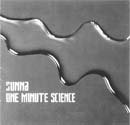All the World’s a Stage
Local theater performances offer chance to learn about humanity,
tolerance
By Reagan Duplisea
skiff staff
When the curtains rise onstage in the Dallas/Fort Worth area, there is one role in local theater that needs more attention — the role of the audience member.
Several people involved with theaters in the community said there does not seem to be a great appreciation of live theater, especially among college students.
Heather Humphery, a junior theater major, said ticket prices deter some students from attending performances. She said she takes advantage of discount student tickets and rush tickets that are available at many local theaters.
“A lot of people don’t know about student rush tickets,” she said.
Rush tickets are discounted tickets sold 30 minutes before a play begins. The Allied Theatre Group (formerly Stage West) offers $5 student-rush tickets.
Courtney Robinson, a senior theater major, said many people do not attend live theater performances because they do not have the patience to sit through a play.
“Some people’s attention spans are so short,” Robinson
said. “They can’t sit through a three-hour Arthur Miller play.”
Carrie Messinger, a senior speech communication major, said she appreciates
the theater because she was exposed to it while growing up, but she said
it is under-appreciated by students and society in general.
“College students are a reflection of modern culture,” she said.
“We’re much more in tune with what movies are out.”
Audiences seem to stick with older, more traditional plays and musicals,
said Markus Lloyd, a senior theater/TV major. The local theaters react
by performing those pieces instead of trying new material.
Lloyd is currently performing in Casa Mañana’s “Big River:
The Adventures of Huckleberry Finn.”
“Theater is a place to connect to the past,” Lloyd said. “We see when times were better and we learn from the mistakes of the past.”
Robinson said she admires theaters like Circle Theatre, which stages a mix of classic and risqué shows to appeal to different tastes.
According to Circle Theatre’s mission statement, it is dedicated to promoting modern-day plays that have been rarely produced.
Several members of the TCU community are involved in these local productions.
Be Boyd, an associate professor of theater, directed Circle Theatre’s current production of “The Dead Presidents’ Club.” Boyd describes the play’s plot as “presidents Truman, Nixon, Johnson and Coolidge waiting in a holding pen to see God at the pearly gates.”
In January, Boyd also performed “Fires in the Mirror,” a one-woman show at Stage West.
Boyd said it is sometimes difficult to balance teaching with her involvement in local theater, but she said the two complement each other.
“I couldn’t teach my students unless I kept my skills up,” she said.
Several TCU students are being cast more often in local theaters, Boyd said. Theater majors Lloyd, John Patrick and Ben Thompson are currently performing in “Big River.”
“There is nothing like doing live theater,” Lloyd said. “I learn more from participating than in class.”
Lloyd said he has the opportunity to work with talented directors in the Dallas/Fort Worth area and with actors that the theaters draw from New York.
Other than seeing classmates onstage, Robinson said there is a variety of reasons to attend local theater productions.
“It’s the only way to glimpse humanity,” he said. “It ups your intellectual level 10 notches because you have to actually think and not just be fed a story, like in a movie.”
George Brown, an associate professor of theater, said he requires students in his Survey of Theatre Arts class to attend local performances.
“By developing cultural habits now, students really start to broaden their horizons and become open to new experiences,” he said.
Boyd said the most important lesson the community can learn by attending live theater is an understanding of others’ points of view, tolerance and communication.
She said she encourages those who attend plays to speak with the actors afterward.
“It’s a valuable experience to see who they really are,” she said. “One of the things actors do is get in the lives of other people and understand what they go through. It makes you a more tolerant individual.”
When she performed “Fires in the Mirror,” Boyd delivered monologues from members of the various cultures touched by the Crown Heights riots. The 1991 riots occurred in Brooklyn when a young Caribbean boy was hit by a Hasidic Jewish motorcade, spawning retaliation from the Caribbean and African American communities.
Andrew Gaupp, director of “Tobacco Road,” said audience members do not have to like the characters in the play to learn something from them. “Tobacco Road” is about the decline of a family’s morals as they come to the end of their time of sharecropping in the 1930s.
“I hope the audience learns something about prejudice, racism, the mistreatment of women in our society, how people adapt or don’t adapt to change and the value of home and family,” Gaupp said.
Reagan Duplisea
elsinore_skye@hotmail.com
CD Review
Sunna: One Minute Science
Jack Buillone
skiff staff
Sunna follows the trail of crumbs left by Nine Inch Nails, with the living and dying of the “now we rock, now we’re quiet” ethos of afflicted industrial metal. With that as their template, Sunna manages to throw in some other contemporary rock influences during the 49 minutes on the album.
There’s nothing wrong with copying somebody, as long as it’s done with grace. However, the hodgepodge of influences on “One Minute Science” are strung together like a threadbare quilt, and as a result manage to create an album that isn’t compelling or even remotely interesting.
Listening to “One Minute Science” quickly degenerates into a game of “Where did I hear this before?” The foreboding acoustic guitar strumming of “Preoccupation” sounds like the Stooges’ “Gimme Danger” without any of the danger. The piercing wails of feedback that function as the backbeat of “Too Much” sounds like R.E.M.’s screaming opus “Leave” played at half-speed.
The feeling of déjà vu isn’t restricted merely to the sonic quality of “One Minute Science.” Lead singer and multi-instrumentalist Jon Harris goes to the alienation well every chance he gets, but his lyrical bucket has some pretty big holes in it. Seemingly every song chorus on “One Minute Science” consists of nonsensical sentence fragments that the guitars and decks weren’t able to drown out. The most memorable is the chorus of “Insanity Pulse,” when Harris sings, over and over again, “I wanna know if, I wanna know if.”
Granted, this kind of music has never been that concerned with what the singer has to say. Lyrics take a back seat to guttural bass and drums that pump like pistons on an assembly line, and crunchy riffs that buzz around the mix like sparks. Guitarist Ian MacLaren, the most obviously talented member of the band (and thus the least used), provides a few fleeting musical highlights. “O.D.” is framed by some subtle wah-wah pedal work that slowly grows into a sizzling riff. “Grape” kicks off with a delicious lick and ends with a beautiful, all too short electric guitar solo that is compensation for the six minutes of musical and lyrical schizophrenia that precede it. But unfortunately for Sunna, it’s too little, too late.
Jack Buillone
Book Review

Sedaris’ essays provide some humor, despite life
By Christina Hager
skiff staff
I pride myself on my unusual memory. I can tell you my favorite lunch in the fifth grade, how I colored my mother’s cheeks blue in a portrait when I was seven and exactly what I wore the first day of my freshman year. I can recall conversations overheard by strangers at the supermarket. My memory is for the trivial, the simple and the personal.
I think David Sedaris feels my pain.
Author of “Me Talk Pretty One Day,” Sedaris is full of stories of irrelevance to the real world. His 28-chapter book consists of brief and hysterical autobiographical essays such as “I’ll Eat What He’s Wearing” and “Jesus Shaves.” Sedaris uses his fairly uneventful life to make bizarre connections and sound advice to the reader.
Upon opening the book, you are addressed by 10-year-old Sedaris, who is undergoing the trials of speech therapy. However, he soon realizes that his lisp has nothing to do with his “lazy tongue,” and perhaps something to do with his future social life. On his speech teacher’s determination to correct his “problem,” he says “did they hope that by eliminating our lisps, they might set us on a different path, or were they just trying to prepare us for a future stage and choral career?”
Young Sedaris feigns interest in sports, knowing “you could turn up your nose at the president or Coke or even God, but there were names for boys who didn’t like sports.” He decides that his lack of correct speech and sports trivia leaves him one alternative — “to take a vow of silence and become a monk.” However, his anal-retentive father decides that time would be better spent playing the guitar. Against Sedaris’ will, his father signs him up for lessons. Upon seeing his new guitar, Sedaris comments, “he wanted me to jam, so I jammed it in my closet.” He plays under the direction of Mr. Mancini, a guitar instructor “who played beautifully but sang ‘Light My Fire’ as if he were a Webelo Scout demanding a match.”
The least impressive chapter in Sedaris’ novel is the one spent detailing his life as a drugged-out artist. A little morbid and bizarre, although at times mildly entertaining, this small section of the book proves to be the sole reason I would never consider giving it to my mother.
Sedaris is definitely human, complete with imperfections and a unique personality to boot. His newest novel is strange, yet humorous, and easy to read — especially if you need to feel better about yourself.
Christina Hager
ctinasing2000@aol.com